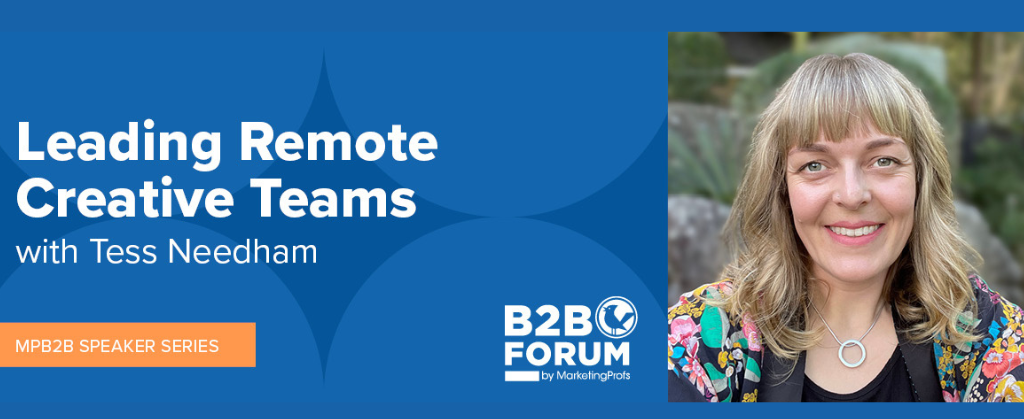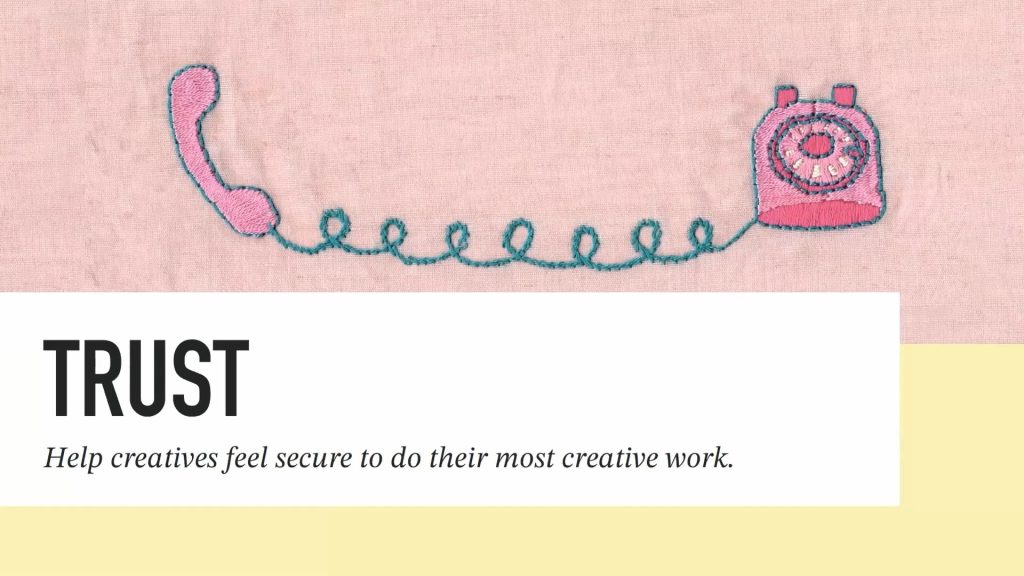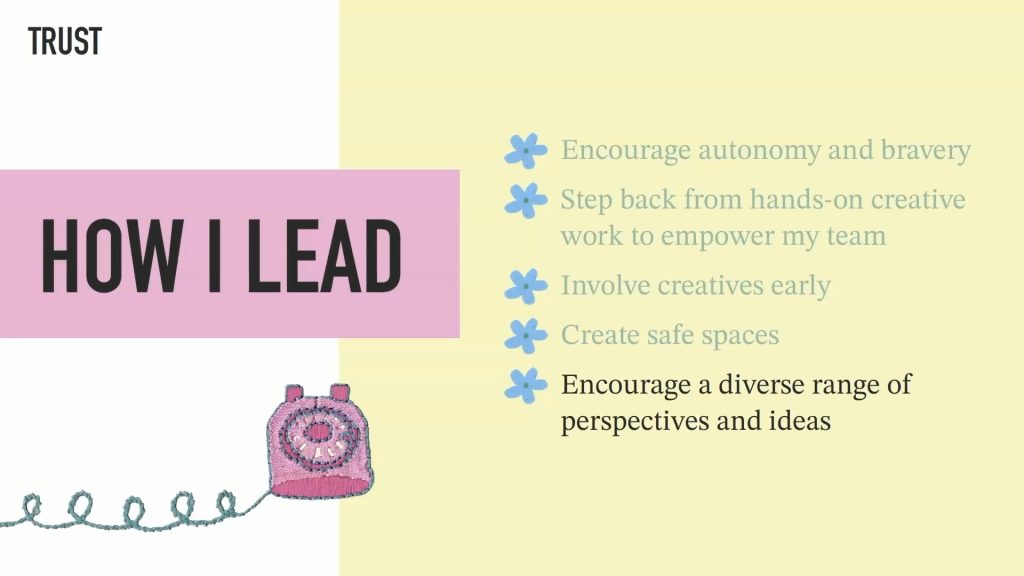
Want the best work from your creatives?
Tess Needham leads a diverse team of remote creatives in her role as Copy & Messaging Manager at WordPress.com. And at B2B Forum 2024, she shared insights into what makes her team successful.
No matter what your official level of leadership, Tess’ suggestions are useful for anyone looking to make their team more trusting and creative. Watch this clip from Tess’ session, or read the transcript below.
Tess returns to B2B Forum this November. Get your ticket now and catch Tess for Welcoming Our Robot Collaborators: AI and Creativity in Content Marketing, just one of over 60 sessions on marketing and leadership at B2B Forum. More than 800 of your B2B peers will be there. How about you? See the official #MPB2B program and get your ticket here.
The next one, a rotary telephone, is trust.
Helping creatives feel secure to do their most creative work. So really building that mutual trust.
Empathy for my talent and skills is essential.

If my lead is not creative, it’s important that they at least appreciate creativity. So as a leader, I foster trust by encouraging autonomy and bravery.

I mentioned Automatics Trial Process earlier. So part of that trial is also that we’re seeing how well that person can work autonomously and how well they can get on with decisions without needing to wait for somebody necessarily.
Of course you need to wait for input, but just to be able to just be brave and experiment, make decisions and move forward.
So this is a really important thing to do, and when you are communicating what you’re doing asynchronously, like on P2, you have more time to think and process and put together cohesive thoughts when it’s in that long-form format.
We make a lot of decisions that way because you can spend time.
And when you’re writing about anything, you have to spend that time to figure out what you actually think about this thing, and you have to get it to a certain… You’re not being reactive, just reacting to what someone said.
You’re actually giving time to think and write about that. Very important.
I stepped back from hands-on creative work so that I empower my team. I try to do this. This is something I’m working on. I love creative work so much, and it’s really exciting to me and I really want to dive into it.
But I recognize that that’s not my job.
It’s my job to empower my team, to unleash the creative potential in them and to really be in awe of their work.
And I really do believe that they’re better than I am at most things. So I try to remind myself to stay out of the weeds on that and so that they can shine in their creative work.
And that really builds trust too, because they see that I trust them.
I try to involve creatives early, and a lot of this is reminding other people to involve creatives early. It’s too often that happens when creatives, especially designers, get pulled in right at the end of the project and, “just make this look pretty.”
They hate that.
They’re happy to make something pretty, but they really hate that. They feel like they have really good ideas, and they do, and they want to be involved from the start of a project. It’s always going to make it better. So I try to do that as much as possible and to encourage other people to do that.
I create safe spaces.
We have private Slack channels as back channels for the team where people can share shitty first drafts without judgment. They can gripe about stuff. Just anything like that, whether it’s personal or work related.
Sharing early work is really important for creatives, but it’s really intimidating to share it out to the organization. And when you’re working like we are, so transparently, it sometimes feels really daunting to do that.
Having these safe spaces, usually it’s a private Slack channel, or it might be like a Figma board, or something that’s only accessible by a few people, really helps to build that trust and get that important early feedback.

I also try to encourage a diverse range of perspectives and ideas.
I think this is really important because not only are creatives usually very diverse and have really good ideas and perspectives, but when we work remotely and asynchronously, we have a lot of people from different cultures, different countries, and just a really diverse range of people. And I want to hear from all of them.
Some ways that I do that is to be really present on Zoom meetings.
I heard a tip once, which is to keep your hands visible in the Zoom so that people know that you’re not multitasking. It’s not like, hi everyone, what are you doing?
But just maybe you’re taking a drink of water and that actually taking a drink of water is a really great one too, to give other people a chance to speak. But yeah, just using your hands or showing that you are really present on Zoom meetings.
I also just encourage experimenting with productivity. So if somebody wants to move a meeting around so they can go to the gym at the time that’s best for them or whatever, all of those things are possible, especially when you work remote.
And so I really encourage that because it makes creatives more creative when they feel like they can be their whole selves.
Published September 30, 2025
B2B Forum is packed with marketing insights, strategies, and tactics taken from the real world experience of over fifty industry experts, packaged into context you can actually put to use.
Join us in Boston for B2B Forum this coming November 17-19, 2025. Early buyers get B2B Forum tickets at their lowest rate, and discounted hotel rooms are available while they last.